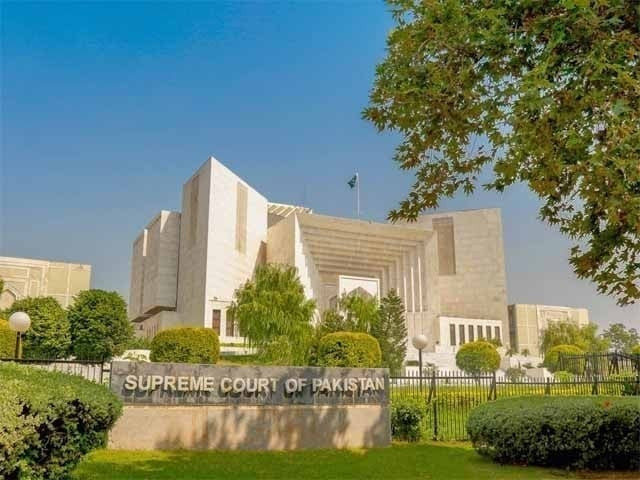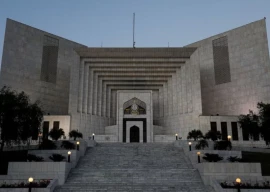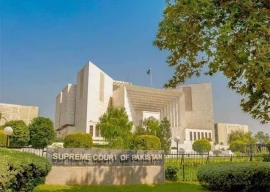
The Supreme Court has directed the federal government to submit an undertaking in writing that from now on no one shall be picked up “other than in accordance with the law”.
This undertaking will be signed by the senior-most officers of the ministries concerned.
According to the written order for the Jan 3 proceedings of the court on the petitions filed against enforced disappearances in the country, the apex court strongly objected to manhandling of the families of the missing persons from the Balochistan province in Islamabad.
“This court takes great exception to such high-handedness because the right to peaceful protest is among the guaranteed fundamental rights which must be honoured in letter and spirit,” the order that was released on Saturday said.
Last month, a group of protesters—mostly women and children—arrived in Islamabad from Turbat district of Balochistan to protest against enforced disappearances in the province.
The Islamabad police, however, launched a crackdown on the protesters and rounded up dozens of them, a move that was widely criticised by civil society as well as political leaders.
Later, the authorities announced the release of the protesters on the order of the Islamabad High Court (IHC).
Referring to its earlier order, the SC noted: “Every citizen and political party has the right to assemble and protest provided such assembly and protest is peaceful and complies with the law imposing reasonable restrictions in the interest of public order.
“The right to assemble and protest is circumscribed only to the extent that it infringes on the fundamental rights of others, including their right to free movement and to hold and enjoy property.”
The written order also explained in detail as to what information the Commission of Inquiry on Enforced Disappearances must provide to the apex court before the next hearing of the case.
Read PPP submits written reply in Bhutto case to SC
“The commission is directed to collate and submit: names with parentage and addresses of those who went missing; name and relationship of the person who reported the missing person; date they went missing [and] those who were in government in the Federation and the concerned province at that time.
“[It should also inform] whether the missing person was recovered or not; if not recovered, the efforts, if any, taken to find out the whereabouts of the missing person. In addition, all those in respect of whom production orders were issued but were not produced, and what was the follow-up by the Commission when its production orders were not complied with.”
The order highlighted that the commission will provide this information electronically and through hard copy to the attorney general for Pakistan (AGP) within 10 days.
“Upon receipt thereof, [the AGP] will submit a response, including why production orders issued by the Commission were not complied with, within 20 days after the Commission supplies the said information. The learned AGP [will] submit a report [hard copy and electronically] to this court.”
The order also touched upon the strange incident of the disappearance of a piece of legislation about enforced disappearances from the Senate Secretariat during the PTI’s rule. The bill moved by former minister for human rights Shireen Mazari had already been passed by the National Assembly.
The court noted that the bill went missing from the Senate during the term of the incumbent Senate Chairman Sadiq Sanjrani, “who was elected by those who were then in government [PTI]”.
“It is alleged that a federal minister’s [Mazari’s] efforts were thwarted by the Senate chairman, who was elected by the votes of the same party. This is a very serious allegation levelled against Mr Sadiq Sanjrani and which pertains to missing persons.
“However, we note that the Senate Chairman, Mr Sadiq Sanjrani, has not been arrayed as a party, therefore, unless the petitioner arrays him as a party it would not be appropriate to attend to allegations made against him,” the order said.

1732503274-0/Untitled-design-(43)1732503274-0-405x300.webp)
1732501636-0/Untitled-design-(42)1732501636-0-165x106.webp)

1732498967-0/Outer-Banks--(1)1732498967-0-165x106.webp)
1732086766-0/BeFunky-collage-(74)1732086766-0-165x106.webp)















COMMENTS
Comments are moderated and generally will be posted if they are on-topic and not abusive.
For more information, please see our Comments FAQ